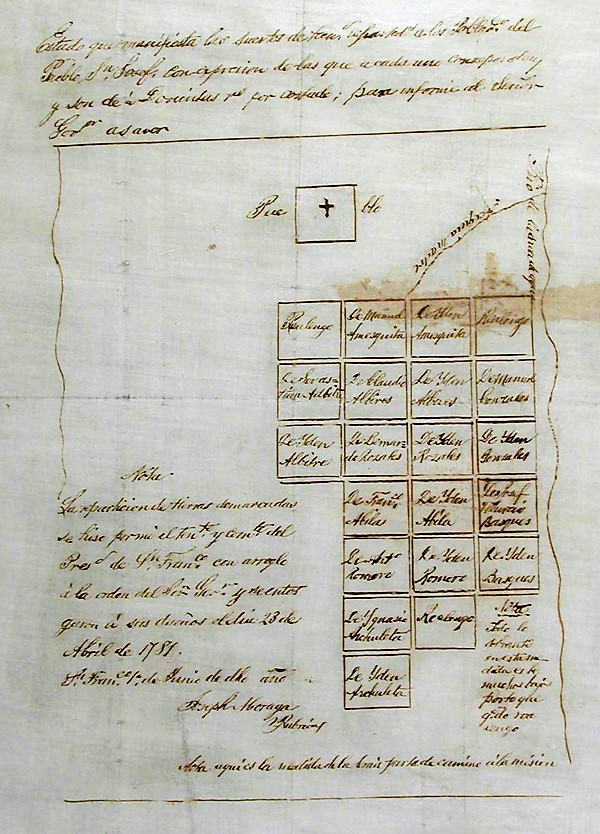|
University Preparatory Academy
University Preparatory Academy (UPA) is a charter school located in San Jose, California, United States. Its charter was approved by the Santa Clara Board of Trustees. UPA opened in the fall of 2007 as a middle and high school, offering grades 7–12th. As of 2020, approximately 650 students attend UPA with a 21:1 student-teacher ratio. In 2020, UPA was ranked the 120th best high school in the nation and the 13th best in California by '' U.S. News & World Report''. Background UPA was founded as University Preparatory Academy in 2007. Graduation standards are more rigorous than at other high schools, requiring more AP units than is mandated by California laws. UPA's campus is located near downtown San Jose in the Willow Glen area. It shares its campus with the Cathedral of Faith, and features its own outdoors amphitheater. Available courses Core classes *Mathematics - Common Core (Math 7, Math 8, Integrated Math 1, Integrated Math 2, Integrated Math 3, Integrated Math 3+) ... [...More Info...] [...Related Items...] OR: [Wikipedia] [Google] [Baidu] |
San Jose, California
San Jose, officially San José (; ; ), is a major city in the U.S. state of California that is the cultural, financial, and political center of Silicon Valley and largest city in Northern California by both population and area. With a 2020 population of 1,013,240, it is the most populous city in both the Bay Area and the San Jose–San Francisco–Oakland, CA Combined Statistical Area, San Jose-San Francisco-Oakland Combined Statistical Area, which contain 7.7 million and 9.7 million people respectively, the List of largest California cities by population, third-most populous city in California (after Los Angeles and San Diego and ahead of San Francisco), and the List of United States cities by population, tenth-most populous in the United States. Located in the center of the Santa Clara Valley on the southern shore of San Francisco Bay, San Jose covers an area of . San Jose is the county seat of Santa Clara County, California, Santa Clara County and the main component of the San ... [...More Info...] [...Related Items...] OR: [Wikipedia] [Google] [Baidu] |
Life Science
Life is a quality that distinguishes matter that has biological processes, such as signaling and self-sustaining processes, from that which does not, and is defined by the capacity for growth, reaction to stimuli, metabolism, energy transformation, and reproduction. Various forms of life exist, such as plants, animals, fungi, protists, archaea, and bacteria. Biology is the science that studies life. The gene is the unit of heredity, whereas the cell is the structural and functional unit of life. There are two kinds of cells, prokaryotic and eukaryotic, both of which consist of cytoplasm enclosed within a membrane and contain many biomolecules such as proteins and nucleic acids. Cells reproduce through a process of cell division, in which the parent cell divides into two or more daughter cells and passes its genes onto a new generation, sometimes producing genetic variation. Organisms, or the individual entities of life, are generally thought to be open systems ... [...More Info...] [...Related Items...] OR: [Wikipedia] [Google] [Baidu] |
International Biology Olympiad
The International Biology Olympiad (IBO) is a biological olympiad for pre-university students under the age 20, and is one of the most well-known International Science Olympiads. The first IBO was held in Czechoslovakia in 1990, and it has since been held annually. The competition have gradually expanded to include more than 75 participating countries across five continents. All participating countries send the four winners of their National Biology Olympiad to the IBO, usually accompanied by two adults who are members of the international jury, for the duration of the competition. To select these top four life science contestants for this international competition, all member countries host Biology Olympiad competitions in typically 3-5 consecutively more difficult national competition rounds. As a consequence, this leads to a trickle-down effect, engaging more than 1 million students worldwide in life science each year. In 2020, during the COVID-19 pandemic, the IBO (host: Japa ... [...More Info...] [...Related Items...] OR: [Wikipedia] [Google] [Baidu] |
AP World History
Advanced Placement (AP) World History: Modern (also known as just AP World History, AP World, or WHAP) is a college-level course and examination offered to high school students in the United States through the College Board's Advanced Placement program designed to help students develop a greater understanding of the evolution of global processes and contacts as well as interactions between different human societies. The course advances this understanding through a combination of selective factual knowledge and appropriate analytical skills. Course Students used to study all prehistory and history, especially from 8000 BC to the present day. However, it was announced in July 2018 that the test would be changed to an AP World History: Modern exam that only contains content since 1200 CE, starting in the 2019–2020 school year, with plans for a new course that's about the time before called AP World History: Ancient. Students in the United States usually take the course in the ... [...More Info...] [...Related Items...] OR: [Wikipedia] [Google] [Baidu] |
Economics
Economics () is the social science that studies the Production (economics), production, distribution (economics), distribution, and Consumption (economics), consumption of goods and services. Economics focuses on the behaviour and interactions of Agent (economics), economic agents and how economy, economies work. Microeconomics analyzes what's viewed as basic elements in the economy, including individual agents and market (economics), markets, their interactions, and the outcomes of interactions. Individual agents may include, for example, households, firms, buyers, and sellers. Macroeconomics analyzes the economy as a system where production, consumption, saving, and investment interact, and factors affecting it: employment of the resources of labour, capital, and land, currency inflation, economic growth, and public policies that have impact on glossary of economics, these elements. Other broad distinctions within economics include those between positive economics, desc ... [...More Info...] [...Related Items...] OR: [Wikipedia] [Google] [Baidu] |
World History (field)
World history or global history as a field of historical study examines history from a global perspective. It emerged centuries ago; leading practitioners have included Voltaire (1694–1778), Hegel (1770–1831), Karl Marx (1818–1883) and Arnold J. Toynbee (1889–1975). The field became much more active (in terms of university teaching, text books, scholarly journals, and academic associations) in the late 20th century. It is not to be confused with comparative history, which, like world history, deals with the history of multiple cultures and nations, but does not do so on a global scale. World history looks for common patterns that emerge across all cultures. World historians use a thematic approach, with two major focal points: integration (how processes of world history have drawn people of the world together) and difference (how patterns of world history reveal the diversity of the human experience). Establishment and perimeters of the field Jerry H. Bentley has observe ... [...More Info...] [...Related Items...] OR: [Wikipedia] [Google] [Baidu] |
Geography
Geography (from Greek: , ''geographia''. Combination of Greek words ‘Geo’ (The Earth) and ‘Graphien’ (to describe), literally "earth description") is a field of science devoted to the study of the lands, features, inhabitants, and phenomena of Earth. The first recorded use of the word γεωγραφία was as a title of a book by Greek scholar Eratosthenes (276–194 BC). Geography is an all-encompassing discipline that seeks an understanding of Earth and its human and natural complexities—not merely where objects are, but also how they have changed and come to be. While geography is specific to Earth, many concepts can be applied more broadly to other celestial bodies in the field of planetary science. One such concept, the first law of geography, proposed by Waldo Tobler, is "everything is related to everything else, but near things are more related than distant things." Geography has been called "the world discipline" and "the bridge between the human and ... [...More Info...] [...Related Items...] OR: [Wikipedia] [Google] [Baidu] |
AP Chemistry
Advanced Placement (AP) Chemistry (also known as AP Chem) is a course and examination offered by the College Board as a part of the Advanced Placement Program to give American and Canadian high school students the opportunity to demonstrate their abilities and earn college-level credit. AP Chemistry has the lowest test participation rate, with around half of AP Chemistry students taking the exam. Course AP Chemistry is a course geared toward students with interests in chemical biologies, as well as any of the biological sciences. The course aims to prepare students to take the AP Chemistry exam toward the end of the academic year. AP Chemistry covers most introductory general chemistry topics (excluding organic chemistry), including: * Reactions ** Chemical equilibrium ** Chemical kinetics ** Stoichiometry ** Thermodynamics ** Electrochemistry ** Reaction types * States of matter ** Gases, Ideal gases and Kinetic theory ** Liquids ** Solids ** Solutions * Structure of matter ** ... [...More Info...] [...Related Items...] OR: [Wikipedia] [Google] [Baidu] |
AP Biology
Advanced Placement (AP) Biology (also known as AP Bio) is an Advanced Placement biology course and exam offered by the College Board in the United States. For the 2012–2013 school year, the College Board unveiled a new curriculum with a greater focus on "scientific practices". This course is designed for students who wish to pursue an interest in the life sciences. The College Board recommends successful completion of high school biology and high school chemistry before commencing AP Biology, although the actual prerequisites vary from school to school and from state to state. Topic outline Topics covered by this course include: *Biochemistry *Botany * Cell biology * Developmental biology *Ecology *Evolution *Genetics * Microbiology *Molecular biology *Population biology *Zoology In addition to the standard biology topics above, students are required to be familiar with a set of 12 specific biology labs, as well as general lab procedure. Exam Students are allowed to use a f ... [...More Info...] [...Related Items...] OR: [Wikipedia] [Google] [Baidu] |
AP Environmental Science
Advanced Placement (AP) Environmental Science (also known as APES, AP Enviro, AP Environmental, AP Environment, or AP EnviroSci) is a course and exam offered by the American College Board as part of the Advanced Placement Program to high school students interested in the environmental and natural science Natural science is one of the branches of science concerned with the description, understanding and prediction of natural phenomena, based on empirical evidence from observation and experimentation. Mechanisms such as peer review and repeatab ...s. AP Environmental Science was first offered in the 1997–1998 school year. Course This course is designed to provide students with scientific principles, concepts, and methodologies necessary to comprehend the relationships abundant within the natural world, to identify and analyze environmental problems, to evaluate relative risks associated with these identified problems, and to examine alternative solutions for resolving a ... [...More Info...] [...Related Items...] OR: [Wikipedia] [Google] [Baidu] |
Physics
Physics is the natural science that studies matter, its fundamental constituents, its motion and behavior through space and time, and the related entities of energy and force. "Physical science is that department of knowledge which relates to the order of nature, or, in other words, to the regular succession of events." Physics is one of the most fundamental scientific disciplines, with its main goal being to understand how the universe behaves. "Physics is one of the most fundamental of the sciences. Scientists of all disciplines use the ideas of physics, including chemists who study the structure of molecules, paleontologists who try to reconstruct how dinosaurs walked, and climatologists who study how human activities affect the atmosphere and oceans. Physics is also the foundation of all engineering and technology. No engineer could design a flat-screen TV, an interplanetary spacecraft, or even a better mousetrap without first understanding the basic laws of physic ... [...More Info...] [...Related Items...] OR: [Wikipedia] [Google] [Baidu] |



